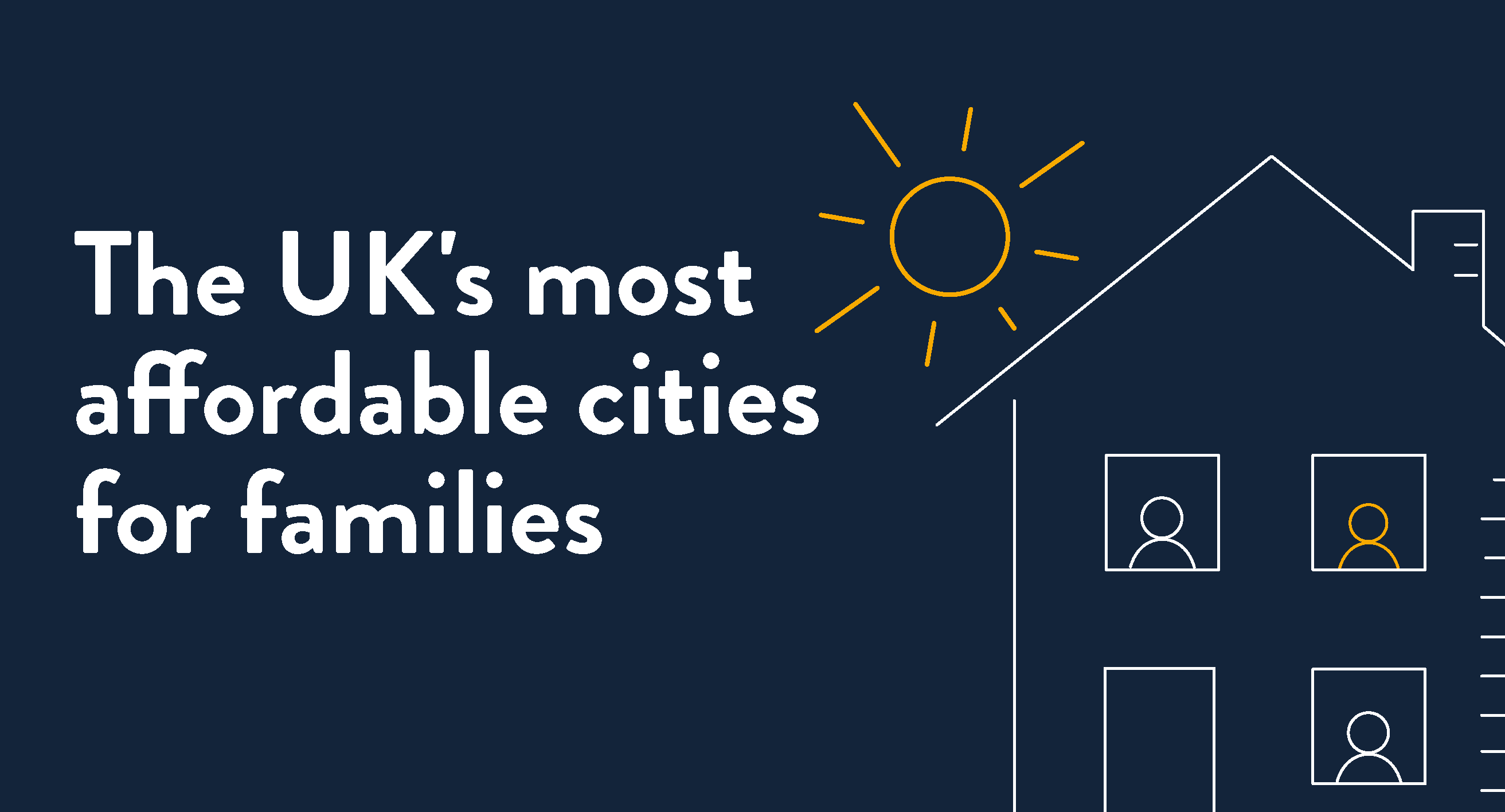
In broad terms, investing is typically putting money into assets with the aim of making a higher return on what you originally put in. Whilst the goal is for your investment to rise in value, you must keep in mind that growth is not always a guarantee and results can be unpredictable.
Historical data shows that investing for a minimum of five years increases the likelihood of higher returns which is why it’s always recommended to have medium to long-term goals in mind. This does, however, depend on the type of investment you go for as there are varying levels of risk and return involved with each.
Read on to find out more about investing for the first time.
Why You Should Invest Your Money
As a first-time investor, this guide can help you learn investing before you get started. Understanding the purpose of investing and its benefits, as well as potential drawbacks, is important. There are plenty of reasons why you should invest your money and some of the most common are:
- Financial security – having investments in place can allow you to live more comfortably. You can diversify your investment portfolio by having different types of investments, including easily accessible styles that you can use should a need arise at any point. This could simply be cash reserves that you keep stowed away in your home in case of an emergency, which can act as a financial safety net for unexpected bills, life events or loss of income.
- Grow your finances – investing your money can be a good way to increase its value over the years.
- Preparing for your future – having an investment in place means that further down the line you have more freedom with your money, which you can put towards larger purchases, such as a home deposit or buying a new car.
- Can decrease the amount of taxes you pay on your income – depending on the type of investment product you have, you may pay no tax on the gains – such as with an ISA. With other types of tax-efficient investments you may receive some tax-relief on profits made and the capital that has been invested.
- Inflation – as time goes by, cash can lose value due to inflation, but if you have money in investments with a focus on long-term growth, your funds are more likely to be aligned with the wider economy. Some investments can outperform cash, depending on the economic climate, which is another reason why it’s beneficial to have a diversified portfolio.
Main Asset Types
Before you start investing, you should think about the different investment options available to you and what could be suited to your needs. For example, the main asset types to consider investing in are:
- Equity investments – typically this involves owning shares in a company. You become a shareholder of a business when you buy shares in it and therefore have partial ownership.
- Fixed income investments – these have agreed interest or deposits and are considered ‘safer’ investments as you are aware of what you contribute and receive. An example is our 5-Year Fixed Rate Bond.
- Property – owning of buildings or land, to receive net rental income from tenants/for the value to increase over time.
- Commodities – these are crucial goods to the economy, such as metals or energy resources. These can be invested in directly or you can invest via a company that produces and sells commodities.
It’s always a good idea to diversify your investment portfolio by spreading your money across a few different asset types, as this can reduce the risks involved and improve the chance of you making a return on your money, as you’re not reliant on just one form.
Investment Goals
Having an investment goal in mind can help you to achieve specific goals or milestones you may be saving towards. If you have something specific to work towards, then this can help you to get to your target as quickly as possible, as you’ll know how much to invest, how often, and the types of investments you should put your money towards.
Goals can range from large purchases you want to make in the future, to helping you reach milestones in your life. For example, the following are common investment goals you could work towards:
- A home deposit
- Early retirement
- A new car
- Starting a family
- Home renovation
- University
- An emergency fund or rainy-day fund
- Travel
- General wealth-building
Goal setting is simple, you just need to focus on what you want to gain in the long- term from investing. If you want to put a timeline on it, this can help you figure out exactly how much you’ll need to invest, which type of investments to look at to achieve your desired return, and how long it might take to reach your target amount. Have a look at your current finances and consider creating a budget plan to see how much you could put aside towards an investment and if you need to change your spending habits to do so.
Regular Investments
If you are looking to invest on a regular basis an investment plan, such as an ISA (Individual Savings Account), might be a good option for you as it has a variety of advantages. You can put a set amount of money away on a weekly or monthly basis, and this is something that you can budget for going forward, which can make it easier to reach your investment goals. You can invest little money this way whilst still having a positive impact on your funds over time.
Another reason regular depositing is something to consider is that it can allow your investment to ride out more volatile periods in the stock market, with pound cost averaging. This is an investment strategy focusing on adding a fixed amount to your investment on a regular basis, regardless of what’s going on in the economy. This is effectively a way to smoothen your investment journey, reducing the risk of sharp dips in your portfolio as your deposits are spread out through higher and lower fluctuations in the stock market. On the other hand, if you were to make large lump sum payments occasionally, this could mean your investment is subject to more unpredictability as it’s hard to know if the value of this will change for the better or worse in the immediate future.
Keep in mind: not all investment types allow you to deposit regularly, such as fixed-term bonds or material assets (for example art, jewellery, collector’s items etc.). So, if this is what you’d like to do, then ensure you weigh up your different options. Ensure you know what you’re committing to and figure out which is best for you.
How to Invest
There are a variety of different ways of investing extra money, and some will be more suited to you than others, depending on what you want to achieve. If you want to know how to start investing, do plenty of research and think about what you want to gain.
You can learn how to invest by trying out different ways of managing your money and finding out what works for you. Opening an investment plan, such as a Stocks & Shares ISA, can be a desirable option for beginners as with this your money is looked after by a fund manager which can make the process easier with some providers, you can also opt for a self-select ISA, where you can have more control over where your money goes.
If you’d rather invest independently, you can use an investing platform where you can select your own stocks and shares and how much money to put towards each – make sure to do plenty of research when it comes to this!
Investing Plans
One of the main reasons an investment plan can be preferable to ease you into investing is that it takes a great deal of responsibility off you. Often, you can still control the risk level of your investment, depending on the provider you go with, however, it is generally fund managers that look after your money for you with the aim of growing it. At Shepherds Friendly there are plenty of medium to long-term investment options for you to consider, such as an Investment ISA, 5 Year Fixed Rate Bond, or even a Junior ISA if you want to start investing for a child.
To open an investment plan with Shepherds Friendly, you can find out more about what we offer and get started today. Get in touch with us or apply online to open your investment plan.
Benefits of Investing
There are plenty of reasons to invest, and one of the greatest benefits is that it can help you grow your money over time. Having an investment in place can allow you to reach your financial goals, but this can look different for each individual. You might be focusing on your future, for example, saving for an early retirement so that you’ll have the funds you need to support your lifestyle. Or perhaps you’re saving for a big purchase like a house or car and need extra finances. Savings can also just be there to give you peace of mind, as you can live safe in the knowledge that should you ever want or need some extra financial support, you have your investment to fall back on.
Mistakes to Avoid When Investing
If you don’t have much knowledge or experience when it comes to investing, then you need to ensure you avoid making common mistakes when it comes to putting your money away. There are a few things that you should always keep in mind as a new investor:
- Be patient – it can take time to see investment growth, and growth isn’t always guaranteed.
- Keep up to date with investing advice – the market can be subject to change so it’s always wise to ensure you’re aware of what’s going on and why.
- Do your research – research is key when it comes to investing and helps you learn how, where and when you should be investing. We have plenty of resources that can help you learn more, such as this beginner guide to investing.
- Consider an investment plan that takes the pressure off you – if you opt to open an investment plan, such as a stocks and shares ISA, then your money is managed on your behalf.
If you’re ever unsure of how to go forward with investing, then seeking financial advice is recommended to ensure that you are making informed decisions. With this, you can receive personalised answers to any of your questions, as well as guidance on what could benefit you in your circumstances.
Summary
With investing, the sooner you get started, the more your money has the opportunity to grow and the quicker you can learn how the process works. You have plenty of different options to get started, depending on what you want to gain and what is most viable for you. Just remember though, it’s recommended that you invest for a minimum of five years to get the most out of what you put in, allowing your investment to ride out the ups and downs of the economy and hopefully rise in value over the long term.
Please note: when investing your capital is at risk and you may get back less than you have paid in. Past performance is not a guarantee of future results.


